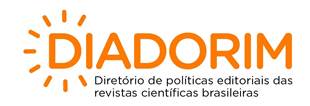ASIA Syndrome and the nociceptive storm: a case report of a refractory headache
Views: 601Abstract
Introduction
Autoimmune Syndrome Induced by Adjuvants (ASIA) encompasses a set of immune-mediated diseases that can affect genetically predisposed individuals exposed to immunoadjuvant compounds, like silicone. Although headache is typical in these cases, the literature lacks information about its characteristics in ASIA.
Objective
Describe and discuss a case of ASIA with headache as the main symptom, approaching its clinical aspects.
Case Report
A 45-year-old female patient presenting with a silicone breast implant sought medical attention for a severe holocranial nocturnal headache (VAS-10). Initially, the acute episodes lasted a few days and were accompanied by tinnitus and visual disturbances. The cephalalgia became chronic and daily, unresponsive to prophylactic and acute migraine medications. The patient reported holocranial headaches with a gradual increase in intensity over a 2-4 hour peek, with a throbbing, pulsating, and stabbing pattern. Additionally, she experienced symptoms such as muscle weakness, cold intolerance, sweating, cognitive impairment, dermatological manifestations, body aches, and transient recurrent hemiparesis, often associated with ipsilateral allodynia and pain. The patient had no prior history of headaches and no familial migraine predisposition. Her medical history disclosed a history of breast augmentation in 2000, with subsequent replacements at 13 and 17 years. The last one, following surgical treatment for ductal carcinoma in situ, occurred in the same year that symptoms of ASIA began. Physical, neurological, and psychiatric evaluations, as well as imaging and immunological tests, yielded normal results. Removal of the silicone breast implant resulted in significant improvement, with the patient reporting relief from symptoms five days post-procedure and complete resolution of headaches 40 days post-explant.
Conclusion
This case report links ASIA syndrome with refractory headache, whose semiological aspects description are lacking for this condition in the literature. Due to non-specificity, clinical symptoms of ASIA often do not meet the diagnostic criteria for well-defined immune-mediated rheumatic diseases, leading to inefficient treatment of psychosomatic illnesses. For the first time we bring you a semiological and clinical presentation of a headache in ASIA.
Downloads
Downloads
Published
How to Cite
Issue
Section
License
Copyright (c) 2024 Luana Makita, Giovanna Grossklags Locatelli, Giovanna Porreca Josetti, Giovana Takeshita Itimura, Elcio Juliato Piovesan (Author)

This work is licensed under a Creative Commons Attribution 4.0 International License.













